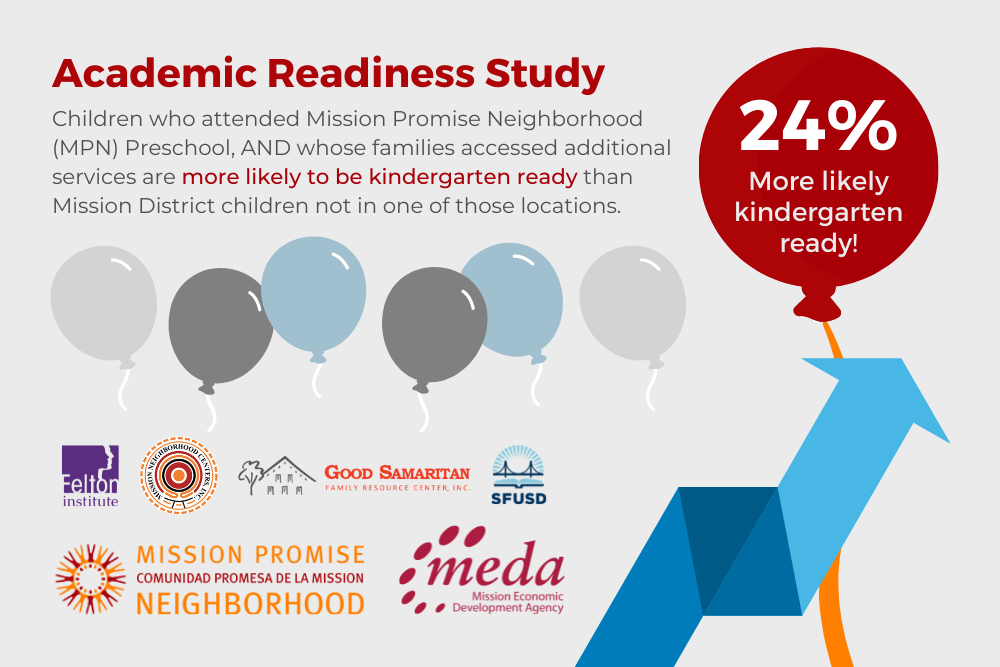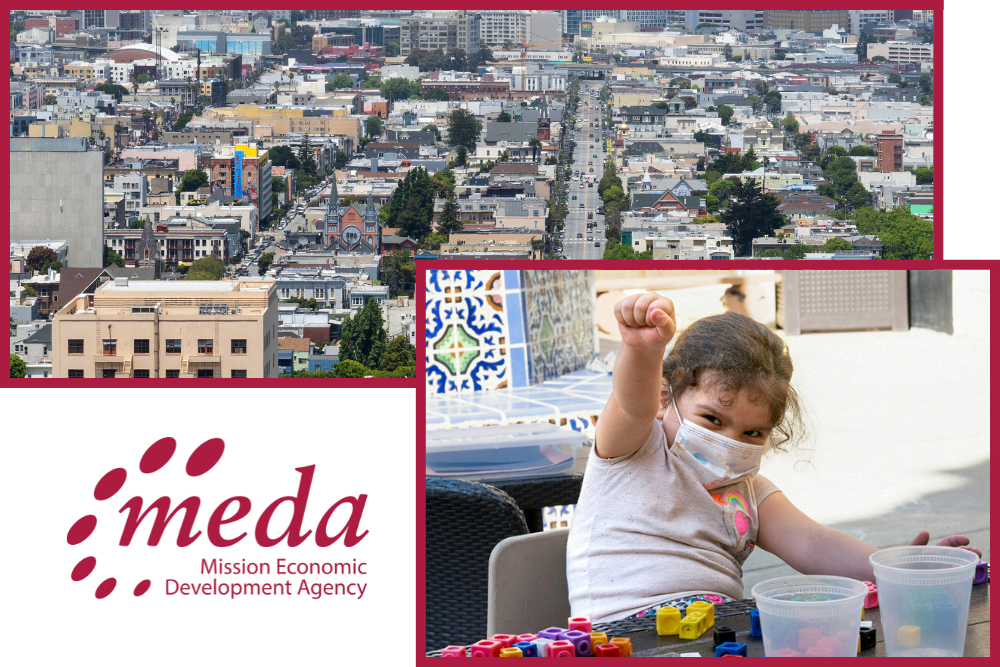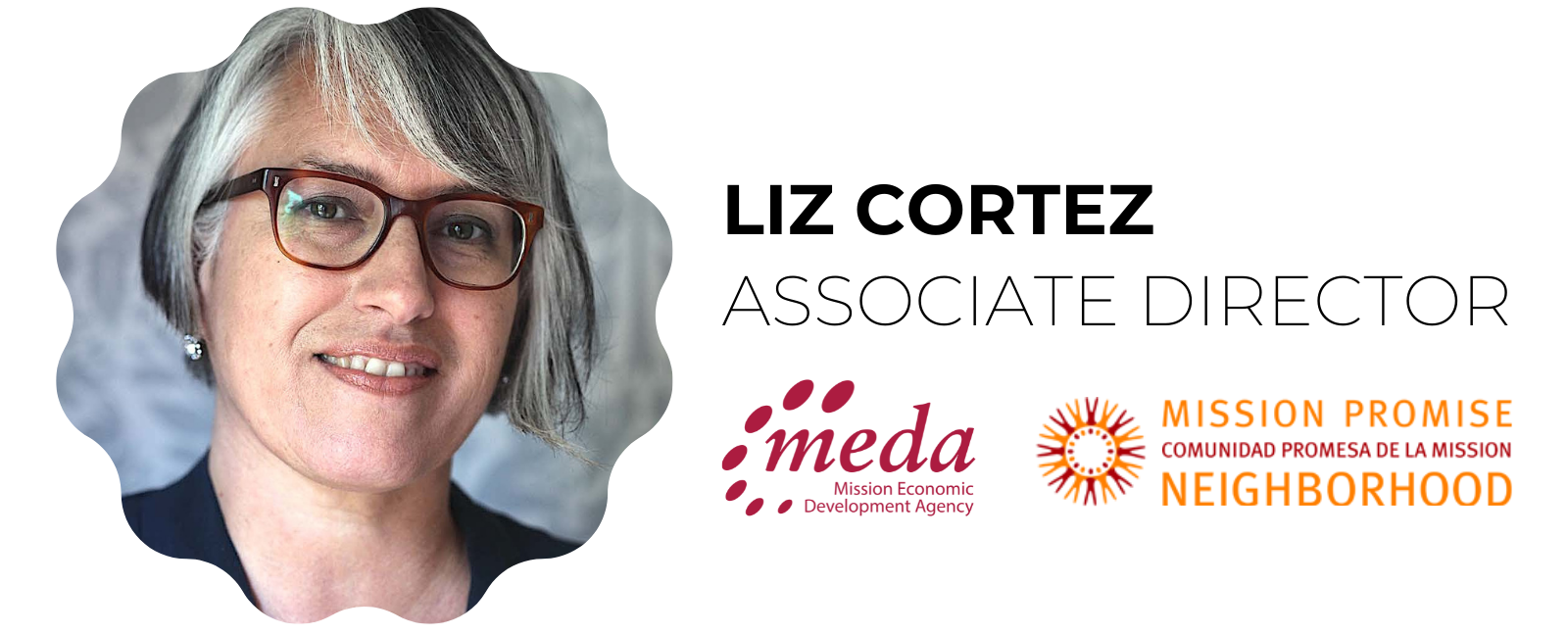Over the last couple of years, the topic of equity has reached a level in public discourse that it hadn’t in years prior to the pandemic. Much of the discussion has centered on racial equity, but also the broader implications of equitable policies and practices across a variety of access challenge points like education and housing. This is why Felton Institute has enjoyed a decades-long partnership with the Mission Economic Development Agency (MEDA), an organization for which equitable practices are not new – in fact, they’ve been doing the work for almost 50 years.
MEDA’s overall mission has been to support generations of Latino families, helping them to thrive economically, succeed in education and lead policy and social change. Since its inception in 1973, it has been working towards these goals within the Mission community by providing financial coaching, small business loans, technical assistance and more – all free of charge. In recent years, they’ve also become an affordable housing developer to tackle the housing crisis.
In 2012, they received a 30-million-dollar grant from the U.S. Department of Education, kickstarting their Mission Promise Neighborhood (MPN) program with the idea that a neighborhood, place-based approach could bring together different organizations and stakeholders to work on a specific set of outcomes for children and families.
“It was a huge investment from the Department of Education at the time, and Felton was one of the partners from the beginning… working on school readiness, children being healthy and families thriving.” says Liz Cortez, Associate Director of MPN for MEDA
“We’re trying to work around educational equity, but the realities are that families are being displaced, families need housing, families are experiencing homelessness. And you have to deal with the immediate need of families. We knew in addition to providing and expanding services, we needed to think about what are the disparities in our community; how can we address these disparities; identify the root causes; and then align across strategies collectively.”
The disparities she refers to are many. In the last 20 years, San Francisco’s Mission District has lost many families to gentrification; one of the reasons leading MEDA to create a community real estate department to deal with affordable housing and address the displacement the community has experienced.
In addition to affordable housing being limited for families, commercial real estate is also limited and expensive. According to Cortez, data showed disparities in the total number of children qualifying for subsidies and early care education, and not enough slots available, “especially for infants and toddlers.” A root cause analysis showed there were not enough facilities in the mission and the high cost of land to be the largest barriers to expanding services overall.
To address both disparities, MEDA and Felton worked together to create a development combining affordable housing and early care and education services. Both agencies were already working on these issues and now would join efforts in a single location – the newly opened Solmar Learning Center. It is Felton’s fifth ECE site but the first to be co-located within a 100% affordable housing complex, Casa Adelante.
“That’s how were addressing both [affordable housing and early childcare services], if you have children, you have the opportunity to get high quality early care and education within your own building. You drop off your child in your own building and then go to work. It’s an amazing model,” says Cortez.
The importance of pairing childcare services with family services was born out in a 2018 study conducted by MEDA at all MPN preschool sites, which included Felton Institute, Mission Neighborhood Centers and Good Samaritan Family Resource Center. The study tracked preschool children from their respective MPN sites through to kindergarten and accessed their overall academic readiness. The results found that children who attended MPN sites, AND whose families accessed additional services, were 24% more likely to be kindergarten ready than children not in one of those locations.

To put that into perspective, that data is for whole families accessing multiple services, for children and adults, that are not combined into one location. So, while the SLC is new and site-specific data is only beginning to be collected, there is a great deal of anticipation that this innovation and the result of the MEDA/Felton partnership will be a game changer – one that keeps families in the community and maybe even helps some who have gone, return.
That is what Cortez feels the most when speaking on the subject, “We kind of dream that we can bring back everybody that left the community. It almost makes me emotional to think about that, but that’s kind of the goal. And it’s probably not going to happen, but I think that we can still maintain families that are still within the community.”
To learn more about the Mission Economic Development Agency (MEDA) click here.
For information about Solmar Learning Center or any of Felton Institute’s early care and education centers click here.
And for a look at the official grand opening video for Felton’s Solmar Learning Center (SLC) click here
About Felton Institute: Founded in 1889, Felton Institute responds to human needs by providing cutting edge, evidence-based mental health and social services that transform lives. Felton Institute is a tax-exempt organization registered 501(c)(3) nonprofit under EIN 94-1156530.
Offering more than 50 acclaimed and honored programs that address homelessness, mental health, prenatal, adolescent, adult, and senior needs, Felton Institute provides services in San Francisco, Alameda, San Mateo, Marin, and Monterey counties. Felton’s social services and programs utilize the latest scientific research, combining cultural sensitivity, deep respect for client and staff, and a commitment to social justice.
Felton is the oldest non-sectarian and nonprofit social services provider in the City and County of San Francisco. For over a century, Felton Institute has been at the forefront of social service innovation, pioneering new approaches to meet underserved populations’ emerging needs. At the heart of our work is the belief that individuals and families in crisis must have access to services and resources to help them build on their inherent strengths and develop self-sufficiency. www.felton.org

